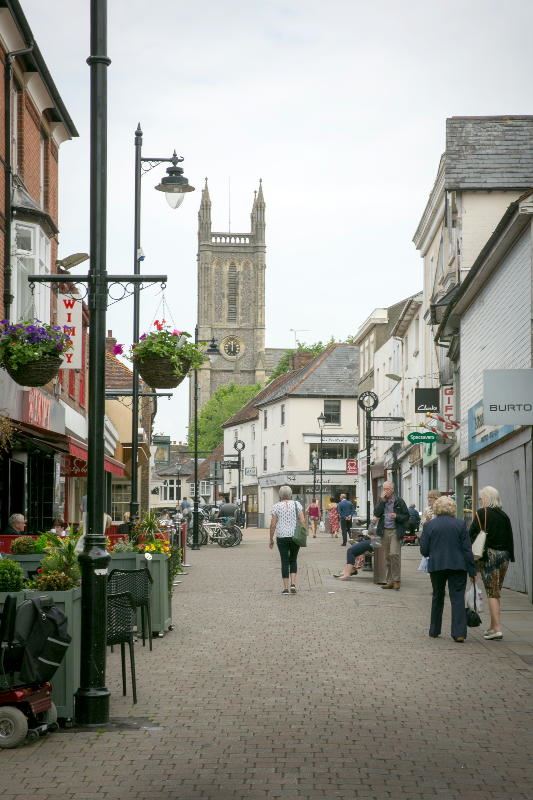
Andover’s bid to become a ‘BID’ takes another step forward.
At a Test Valley Borough Council Cabinet meeting last night, members agreed to a request from the Andover BID (Business Improvement District) Steering Group to set in place arrangements for a BID ballot and to issue a tender for consultants to support that work.
Economic Development and Tourism Portfolio Holder, Councillor David Drew said: “Evidence shows that a BID ballot is significantly more likely to succeed with the help of expert consultants, and we are looking forward to getting this advice. The BID is led by business with the council having a supporting role and it is important that this continues to be the case. If the ballot is successful, an independent BID company will enable town centre businesses to take responsibility for managing and promoting Andover town centre, working with the Council and other agencies.”
Dave Stanbridge, Chair of the BID Steering Group, said: “I am delighted that Test Valley Borough Council is supporting Andover becoming a BID. We have a strong local economy which has a lot of potential to grow. I look forward to progressing the project further.”
The Council’s support for Andover town centre dates back at least to the Andover Summit in 2012 and investing in our town centres is one of the initiatives within our current Corporate Plan. More recently the Council has worked with town centre businesses to explore the potential for and implications of a BID through a Feasibility Study. The current request from businesses, for the Council to set in train arrangements to hold a BID Ballot, is the logical conclusion of that work.
More information can be found here : http://andoverbid.co.uk/
A BID is a business-led and business-funded company formed to support and enhance a defined commercial area – normally a town centre but occasionally an industrial estate. There are about 273 BIDs in the UK.
For a BID Ballot to succeed it must be won on two counts: straight majority of business rate payers eligible to vote within the defined boundary and majority of rateable value. This ensures that the interests of large and small businesses are protected.
